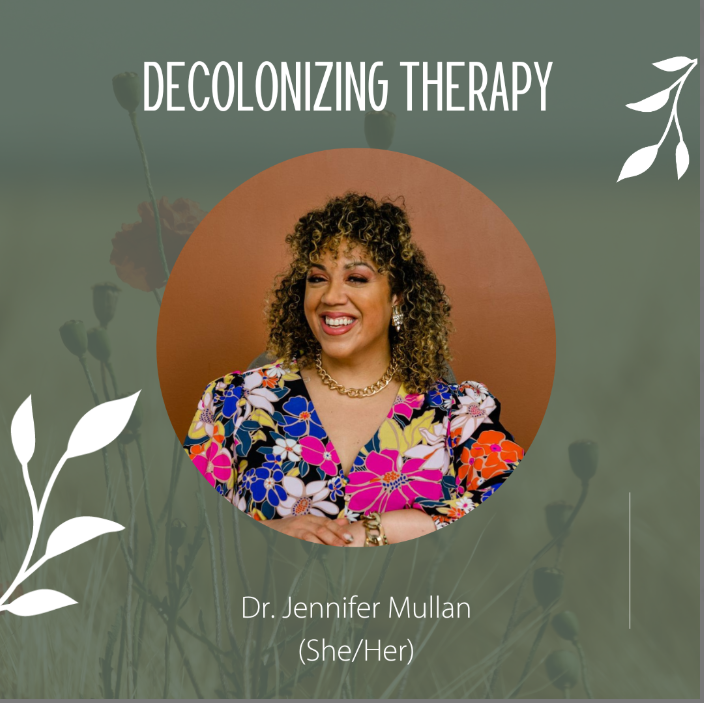Why IFS Is Transformative for Black Women Healing Childhood & Generational Trauma
Serving University Area, Highland Creek, Northlake, Davis Lake, Uptown and surrounding areas. We also provided services online in NC, SC, VA, GA, and DC. All therapists are not licensed in all states.
“Why do I react this way? It’s like I’m carrying something that isn’t even mine.”
If you’ve ever felt weighed down by patterns you can’t explain—deep shame, self-doubt, or overreacting to stress—you’re not imagining it. Many Black women are carrying generational trauma—pain passed down through families, shaped by centuries of systemic oppression, racism, and survival-based parenting practices.
Science is now proving what our communities have always known: trauma can be inherited. Research published in the National Institutes of Health (NIH) confirms that racial trauma can leave epigenetic markers—biological changes passed to future generations.
But here’s the hope: healing is possible. And Internal Family Systems (IFS) therapy is one of the most effective, compassionate ways to break the cycle.
What Is Generational Trauma?
Generational trauma—sometimes called intergenerational or ancestral trauma—occurs when unresolved pain is passed down through family systems. For Black women, this might look like:
- Feeling a constant need to “prove” yourself, even when you’re already successful.
- People-pleasing or perfectionism rooted in survival strategies taught generations ago.
- Difficulty expressing emotions because your family valued strength over vulnerability.
- Carrying deep, unexplained sadness or anxiety that doesn’t seem to belong to you.
These patterns aren’t personal flaws—they’re learned adaptations. And they can be healed.
Why IFS Therapy Works for Generational Trauma
Internal Family Systems (IFS) therapy is an evidence-based approach that views the mind as made up of different “parts,” each with its own feelings and roles. Some parts protect you (perfectionists, caretakers), while others hold pain (younger, wounded parts).
Unlike traditional talk therapy, IFS doesn’t force you to relive trauma. Instead, it helps you build a compassionate relationship with these parts so they feel safe enough to heal.
The Core Steps of IFS
- Identify Your Parts: Learn to recognize the different emotional parts of you—especially those carrying old burdens.
- Access the Self: The calm, compassionate part of you—the “real you”—becomes the healer.
- Unburdening: Once your parts feel safe, they can release the pain they’ve been holding—sometimes for generations.
Recent studies support IFS’s effectiveness. A 2024 pilot study found that IFS significantly reduced PTSD symptoms and increased self-compassion in trauma survivors.
Case Example: “Erica”
(Name changed for privacy.) Sheron, a 38-year-old Charlotte-based attorney, came to therapy feeling like she was “never enough.” She realized her inner critic sounded a lot like her mother’s voice—who said harsh things to scare Sheron from doing something that might get her in trouble. It influenced her into feeling she had to be perfect. NO MISTAKES. She had to be “twice as good” just to survive.
Through IFS, Sheron met the younger “part” of herself that had internalized this harshness. She learned to approach this part with compassion instead of criticism. After some time doing IFS work, Sheron described feeling “lighter”—she set healthier work boundaries and no longer felt crushed by her own expectations.
Healing Without Reliving Trauma
One of the most powerful aspects of IFS is that you don’t have to rehash every painful memory. Healing happens through compassion, not by retraumatizing yourself. Your Self—the calm, wise part of you—leads the process, creating a sense of safety that many Black women have never been allowed to feel.
Practical Ways to Start Healing Now
Even before starting therapy, you can begin connecting with your parts:
- Pause and Notice: When you feel overwhelmed, ask yourself, “What part of me feels this way?”
- Name the Part: Give it a gentle name, like “The Worrier” or “Little Me” or My 9 year old self.”
- Offer Compassion: Say to yourself, “I see you. Thank you for trying to protect me.”
- Journal the Conversation: Write a dialogue between you (your Self) and this part—it’s often surprising what comes up.
Why Charlotte Black Women Need Culturally Responsive Care
Generational trauma doesn’t exist in a vacuum. For Black women in Charlotte—whether working in finance uptown, teaching in University City, or raising families in Huntersville—current systemic stressors often activate old wounds. Culturally responsive therapists understand this intersection and create spaces where you don’t have to explain why you feel the way you do—we already know.
You Can Break the Cycle
You are not destined to carry this weight forever. Healing your parts doesn’t just change your life—it can change the story for future generations.
At Mended Counseling, we specialize in helping Black women in Charlotte heal deeply using IFS therapy. Whether you’re navigating childhood wounds or unspoken family pain, you deserve to feel whole.
👉 Book your IFS consultation now and begin rewriting your story.





